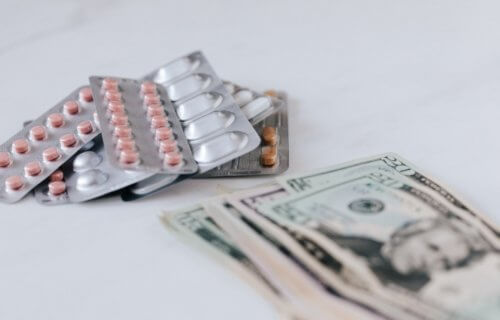BALTIMORE, Md. — Brand name prescription drugs are something many patients simply trust more than their generic (or no-name) alternatives. However, the cost of these drugs is taking a staggering toll on the American health care system. Researchers from Johns Hopkins Bloomberg School of Public Health find that opting for brand name prescriptions over generics costs the Medicare Part D program $1.7 billion more each year.
Although there are laws which promote the use of affordable generic drugs, the study finds both clinicians and patients requested a brand name drug over the generic 30 percent of the time in 2017. The Medicare Part D program offers coverage plans for outpatients 65 and older, as well as disability benefits. The coverage accounts for almost a third of the overall amount spent on prescription drugs in the U.S. alone.
Costly choices for American taxpayers
The study analyzed 169 million prescriptions, of which 8.5 million were name brand even though a generic version was available for each. Overall, 17 percent of the name brand drugs dispensed were requested by a doctor. Another 13.5 percent were requested by patients themselves.
“Even with laws in place, requesting a brand name drug happens way more frequently than it should. This dispensing pattern results in exponentially higher costs for both the Medicare Part D program and patients,” says Gerard Anderson, Ph.D., a professor in the Department of Health Policy and Management, in a university release.
In the study, researchers analyzed a random sample of Medicare beneficiaries in 2017, along with 224 prescription drugs which all had at least one generic version available. Also, each of the drugs had at least 1,000 claims. Researchers determined the type of drug prescribed, the cost of the drugs in the Medicare Part D program, and the amount of money spent by the patient.
Results show that patients could have saved $161 million if their doctor requested generic drugs instead. Additionally, if the patients had requested the generic version, Americans could have saved an extra $109 million.
Why don’t people like generic drugs?
Current research indicates many patients are skeptical about the overall effectiveness of generic drugs, with three in 10 people preferring brand names and 46 percent asking their physician for these more recognizable drugs. Although only five percent of the drugs dispensed through the Medicare Part D program are name brand medications, researchers say the cost of branding medications is harmful to the program and patients.
The study discovered that $4.42 billion was spent on name brand prescription drugs that were not specifically selected by physicians or patients. Researchers recommend the program cut down on branding and offer generic drug options when available. Also, improving the perception of generic versions by clinicians is an important step in persuading patients to request generic options rather than the more expensive alternative.
“Patients should always be mindful of the extra costs for themselves and for taxpayers associated with requesting a brand-name prescription drug. Prescribing clinicians can also play an important role in educating their patients on the safety and effectiveness of generic drugs,” adds Ge Bai, Ph.D., CPA, associate professor at the Johns Hopkins Carey Business School.
The problem of prescription drug prices tends to be a uniquely American issue. A recent study found that drug prices in the U.S. are 2.56 times higher than they are in 32 other nations.
The findings appear in the journal JAMA Network Open.
